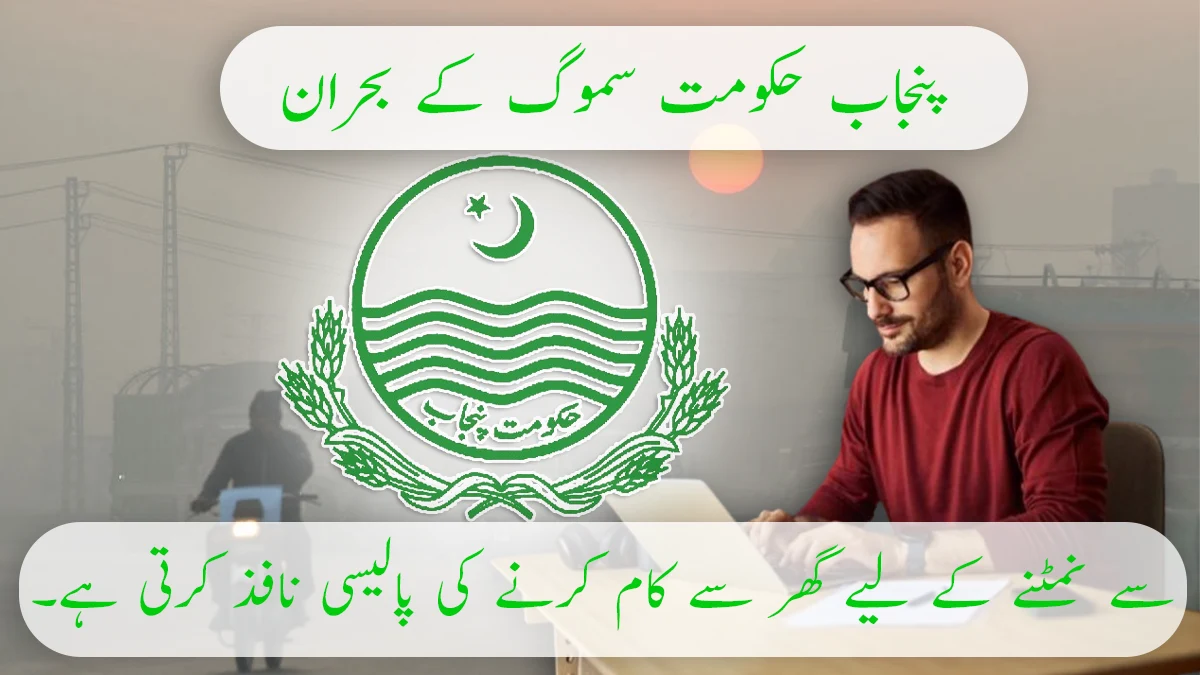Introduction
With worsening air quality across Punjab, the provincial government has introduced a work from home policy aimed at reducing pollution and prioritizing public health. This decision affects major cities such as Lahore, Faisalabad, and Gujranwala, where pollution has surged, creating severe health hazards.
For more articles: World of Updates
Work From Home Policy Details
The policy requires that both public and private offices operate at 50% on-site capacity, allowing half of the workforce to work remotely. This approach aims to cut down on daily commuting, one of the largest contributors to urban pollution in densely populated areas. By minimizing the number of vehicles on the road, the government hopes to reduce emissions during the high-smog season.
Protecting Public Health
The smog has triggered health concerns, especially respiratory issues and eye irritation, as levels of particulate matter (PM2.5) continue to rise. These pollutants are especially dangerous for vulnerable populations, such as the elderly and young children. The work from home initiative helps protect residents from prolonged exposure to these harmful air pollutants, addressing a pressing health emergency.
Environmental Goals
This policy also highlights the government’s dedication to tackling environmental issues. By encouraging remote work, the province can directly reduce pollution while promoting more sustainable practices. This effort could set a precedent for future policies addressing the root causes of pollution and improving air quality over time.

Future Outlook
While temporary, this policy reflects the growing awareness of the need for sustainable development and urban planning. Success in this initiative may encourage longer-term measures, like enhancing public transit and stricter vehicle emissions standards. It also promotes awareness of environmental responsibility at both the individual and organizational levels.
Conclusion
Punjab’s new work from home policy is a proactive response to an urgent health and environmental crisis. As pollution continues to challenge public safety, policies like this serve as essential steps toward safeguarding citizens’ health and securing a cleaner, healthier environment for the future.

